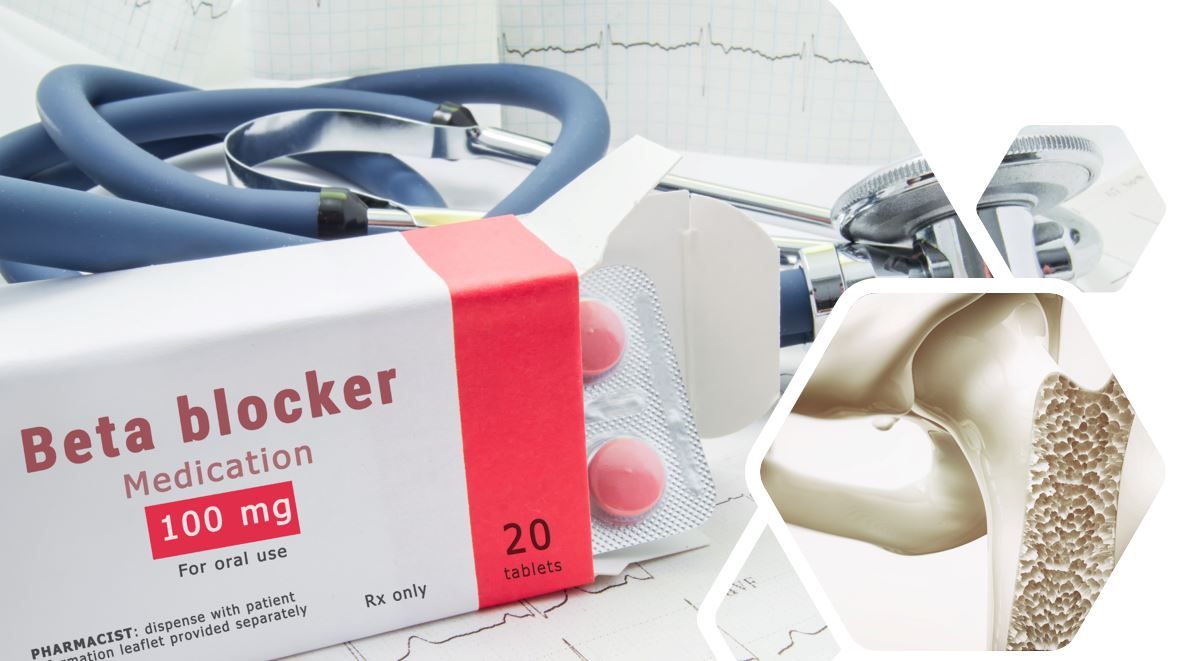Article
Beta Blockers May Protect Against Bone Loss
Author(s):
Beta blockers may slow the rate of bone loss that occurs as people age, a study published in JBMR Plus suggests.
(©Shidovski,AdobeStock), (©AdobeStock_Crevis)

Beta blockers may slow the rate of bone loss that occurs as people age, a study published in JBMR Plus suggests.
The study found significant differences in bone mineral density at three out of four bone sites in beta blockers users compared with non-users, and the effect was seen for both beta-1 selective and nonselective beta blockers.
Some observational studies have suggested that beta blocker use may be associated with higher bone mineral density, but only a few randomized trials have looked at the impact of beta blockers on bone, such as by assessing turnover markers, and these have produced mixed results. However, these studies did not have detailed information on dose, duration, and beta-1 selectivity.
In this latest study researchers accessed data on 1520 participants of the Offspring Cohort of the Framingham Heart Study which included detailed information on beta blocker use. Complete hip and spine bone mineral density measurements were also available because the patients had been enrolled in the Framingham Osteoporosis Study which began 1996. The average age of patients was 66 years, 54% were women, and a quarter used beta blockers.
After adjusting for variables between the groups, the results showed that beta blocker users had significantly higher bone mineral density than none users at three of four bone sites (femoral neck, total femur, and lumbar spine). The differences were 3.1% (95% confidence interval, 1.1% to 5.0%) for femoral neck, 2.9% (95% CI, 0.9% to 4.9%) for total femur and 2.7% (95% CI, 0.2% to 5.0%) for lumbar spine. The 2.4% (95% CI, −0.1% to 5.0%) difference seen for femoral trochanter was not significant.
The associations were slightly greater for women compared with men, and both beta-1 selective and nonselective beta blockers produced the effect.
On average women who used beta blockers had a 3.7% higher bone mineral density at the femoral neck compared with non-users. The researchers pointed out that the magnitude of this difference is roughly six times the average annual loss of femoral neck bone density of 0.6% in older men and women (average age 75 years).
No association was seen between the duration of beta blocker use and differences in bone mineral density, but dosage did have an impact. The effect size increased with dose level at low to intermediate dosages but then appeared to level off or decrease at higher doses.
Dr. Lary

Christine Lary, Ph.D., from the Center for Outcomes Research and Evaluation at Maine Medical Center Research Institute, Portland, Maine, said: “The plateau was observed at about two thirds of a defined daily dose which corresponds to 50 mg/day for atenolol and 100 mg/day for metoprolol, which were the two most frequently used beta blockers in our study.”
The researchers concluded that their large comprehensive study had shown that beta blocker use is associated with higher bone mineral density in a dose-related manner regardless of beta-1 specificity and duration of use, and that their findings support the conduct of a randomized clinical trial of beta blockers for achieving improvements in bone mineral density for individuals at risk of bone loss with aging.
“We note that this is an observational study that showed an association only, and that clinical practice should not be changed until a randomized clinical trial is completed.” Lary said. “This study was in a general population of older adults so it is not clear what the bone mineral density association with beta blocker use would be in patients with rheumatological issues,” she added.
_________________
REFERENCE
Lary, C.W., Hinton, A.C., Nevola, K.T., Shireman, T.I., Motyl, K.J., Houseknecht, K.L., Lucas, F.L., Hallen, S., Zullo, A.R., Berry, S.D. and Kiel, D.P. (2020), Association of Beta Blocker Use With Bone Mineral Density in the Framingham Osteoporosis Study: A Cross‐Sectional Study. JBMR Plus, 4: e10388. doi:10.1002/jbm4.10388




